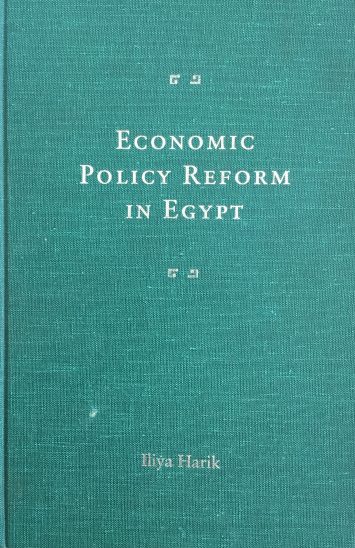Economic Policy Reform in Egypt.
Harik, Iliya.
Synopsis
Provides a new perspective on public policy in postrevolutionary Egypt, breaking theoretical ground in the development debate. . . . Students and scholars in the fields of Middle East studies and development studies will find this work seminal.”–Tareq Y. Ismael, University of CalgaryFocusing on six areas of economic policy reform in Egypt–industry, agriculture, subsidies, foreign exchange, education, and housing–Iliya Harik outlines the development strategy of a country that once led the nonaligned nations of the Third World and explains its slow transition from an authoritarian to a more open and competitive system.Harik observes that Egypt’s poor economic performance under Nasser, Sadat, and Mubarak has resulted from a development strategy emphasizing balance over growth. While some analysts have claimed that Egypt’s economy has suffered under a heavy welfare burden, Harik shows to the contrary that the bulk of spending has gone to support a form of economic nationalism aimed at controlled self-sufficiency–an economic strategy that has ultimately proved detrimental both to growth and to social welfare.Beyond his analysis of Egypt s economic model, with its bias for slow growth and high cost, Harik shows how unrealistic policies have engendered a culture that is not civic-minded and explains the political and economic reasons for the regime’s gradualist approach to change.






